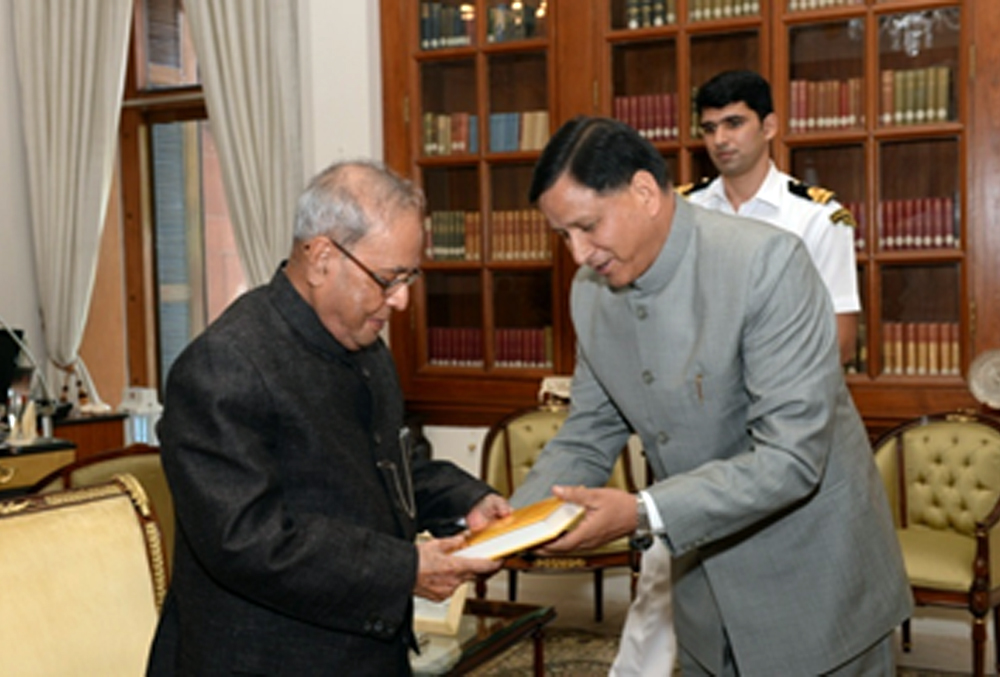Pranab Babu, as he was reverentially known, died at the age of 84. He was the 13th President of our republic. Thirteen was his lucky number as before his election as the President, he preferred to stay at the 13, Talkatora Road bungalow, a “lower type” of accommodation, despite his entitlement for the highest type. He was the strategic thinker and an ace mediator of the Congress, yet the vestige of Rajiv Gandhi’s distrust and, his sharp intellect and independent mind, perhaps, stood against him and as some journalists rued, “the best Prime Minister that India never had”.
As a parliamentary official, I was privileged to watch and observe him closely for over three decades. He came in close contact of Mrs Gandhi during the liberation war of East Pakistan for his suave diplomatic skills and extraordinary perseverance and gradually rose to become her Commerce and Industry Minister and later Finance Minster. But he was sidelined by Rajiv Gandhi due to certain misgivings and political intrigues, and yet, Narasimha Rao rightfully rehabilitated him as Deputy Chairman, Planning Commission, and later as External Affairs Minister. He was not a popular political leader as such, but was regarded highly by political leaders across the political spectrum. L.K. Advani observed once in the Lok Sabha rather sarcastically during UPA II as “what would have happened to the Congress without Pranab Da”, as he resolved the internal as well as the external crises faced by the Congress. He was known for his prodigious elephantine memory and mercurial temper. In Parliament, he was heard with rapt attention and so did he when leaders of political parties spoke. As a seasoned parliamentarian, he would yield to the Leader of Opposition if interrupted. He especially held Arun Jaitley, then Leader of Opposition in the Rajya Sabha, in high esteem and took note of his observations on finer legal and constitutional matters. He was rightly hailed as “the marathon man of Indian politics”. In his speeches in Parliament, he did not quote much. He was not too pedantic but pragmatic and there was a certain candour and remarkable gravitas in his speeches that made MPs listen with rapt attention. Once, during the floor test sought by the Congress-led UPA government in 2008 on the civil nuclear deal following withdrawal of support by the Left parties, when interrupted by some Opposition members, Pranab Mukherjee flew into a rage and thundered, “this is not time for puns and jokes but for serious debates”. Calm was restored instantly in the House.
He held many portfolios—External Affairs, Commerce and Industry, Defence and Finance. He delivered seven full budgets and one interim budget. In 1982, as Finance Minister, after he delivered one of the longest budget speeches, lasting 1 hour and 35 minutes, Indira Gandhi quipped, “The shortest Finance Minister has given the longest budget speech”.
I recall one incident when Pranab Mukherjee was Dy Chairman, Planning Commission. I was OSD to Sitaram Kesri, the Welfare Minister (now rechristened as Ministry of Social Justice and Empowerment). The Ministry mooted a proposal for fixing Rs 50 crore as the seed capital of the National Scheduled Castes Finance and Development Corporation for the economic empowerment of the Scheduled Castes. It was, consciously, kept as a meagre amount as the Ministry was apprehensive that a higher amount may not be approved by the Commission. Kesri rang up Pranab Babu, elaborated on the avowed objective of the government of empowering the historically wronged vulnerable sections, and Pranab Babu at once agreed and the Corporation was allocated the seed capital of Rs 300 crore.
Pranab Mukherjee was elected to the Rajya Sabha way back in 1969 on Bangla Congress ticket which later merged with the Congress. He was elected to the Rajya Sabha five times and to the Lok Sabha in 2004 and 2008 from Jangipur constituency, West Bengal and elected as President in 2012.
In 2016, when my book was released, I wished to present a copy to the President. I approached his office
He was nostalgic and glowingly referred to the autonomy of Parliament and its secretariats as enshrined in Article 98 of the Constitution. Referring to the last chapter of my book, the “Future of Democracy:, he observed that it’s only a robust Parliament, and not a rubber stamp Parliament, that can secure the accountability of the executive to the legislature. He also fleetingly referred to the tenure of his predecessor Presidents and the convention of the Vice President being elevated to the President, while mentioning that he became the President as a departure from the general convention. I shall always treasure the memory of those most precious six-seven minutes spent with Pranab Mukherjee, the President of the Republic.
The writer is ex-Additional Secretary, Lok Sabha, and an author.

